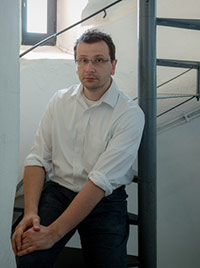
It is well-known that many of your attitudes reflect anarchism as a political philosophy. How do you define your philosophical and political orientation?
"For me, anarchism is nothing but a consecutive, consistent democracy. Anarchism strives for an essentially democratic society that respects the interest of individuals and social groups and which creates a social organization in such a way as to value freedom for every member of that society, while that freedom does not jeopardize others. As far as I am concerned, the key to anarchism is the insistence on critique of the power structures (and the illegitimate use of power), regardless of whether these structures emerge as a patriarchal family, state, corporation, or local mafia groups.
Is it possible to achieve a perfect democratic society?
There are no perfect societies, not even perfect democratic societies. But there are some in which democratic ideals are realized largely, and in which the majority of citizens possess a highly developed social and political consciousness without which there is no functional democracy. Take for example Iceland or Finland. There is an idea about the place, the role and the value of the individual in society, as well as the solidarity and the need for all individuals to contribute to that society, i.e. to each other. Solidarity of citizenship, joint struggle against various forms of corruption, pressure on the state, ie government is an indicator of citizen maturity, something that we all need and enables us to we live a better life.
How then to awaken as a society?
Facing reality and employing your creative potential. Realizing that many things can be changed for the better, but others will not do it for you. There is the idea of destiny in this region [Serbia], that nothing can be changed. It's an ideological trick - for if nothing can be changed, then there is no need to do anything, to work hard, no responsibility. But if you do not agree to this, if you realize that this present reality is the result of very complex processes that have some cause and effect, and if you realize that the future will be the result of what is happening today and how much we are working on today, then it raises the sense of responsibility for the decisions we make today. The good news is that social reality can be changed for the better. The bad news is that it requires a lot of time, knowledge, experience, cooperation, understanding. It is still relatively easy to mobilize people to the revolution, but it is much harder to do what comes after, that is, the issue of editing society so that everyday life is meaningful and that people have a sense of worth of work and life in a society.
